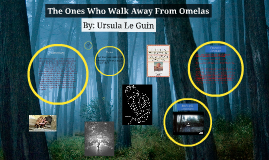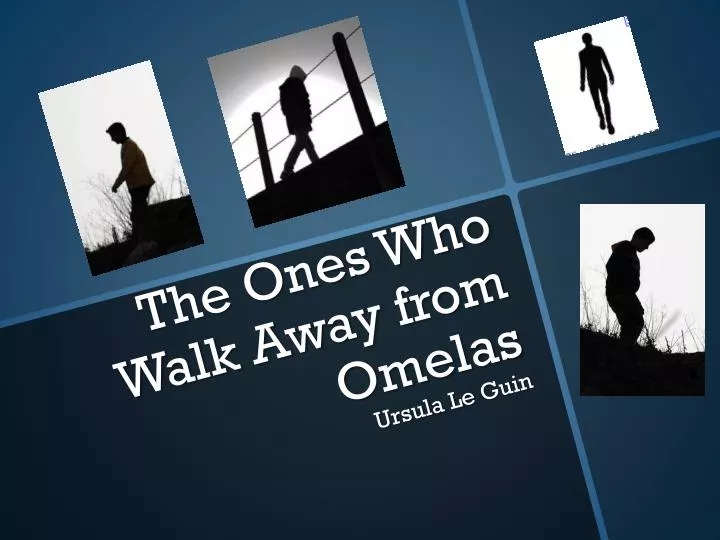

Rowling “ripped me off” in her Harry Potter series, but felt that Rowling should have been “ more gracious about her predecessors”. Regarding the story of Ged in A Wizard of Earthsea, Le Guin didn’t say that J.K. Le Guin does not give her readers any clear answers to this question-she only poses it to her reader by depicting the child as a scapegoat in the extreme.If this sounds familiar, you’re not the first to note it. (A scapegoat is an individual who suffers in place of many-for example, the one criminal who takes the fall for robbing a bank to save the rest of his criminal team from jail, even though they robbed the bank together.) The symbolic scapegoating of this one child, in “The Ones Who Walk Away from Omelas,” begs the question of whether a society can be called “just” or “perfect” if it is founded on even one instance of cruelty and injustice. Like all people in “The Ones Who Walk Away from Omelas,” The Child is highly symbolic, serving not only as the scapegoat for the society of Omelas, but as a symbol for scapegoats more generally. It experienced happiness enough to understand that it is now suffering.

I will be good!” Even though it has been objectified through torturous neglect for years, the child still remembers sunlight and its mother’s voice-thus, it remembers what it was like to be treated like a human being well enough to understand that its current state is inhuman. Even though the child is locked in perpetual suffering, it still protests its situation, pleading with its jailors: “Please let me out. Its body is underdeveloped and covered in festering sores. The child is malnourished and un-socialized. The narrator exclusively uses the pronoun “it” when describing the child, reinforcing the child’s status as an object rather than a subject in its own right. The reader never learns the child’s personal information, in part because it barely has any Omelas has denied it the opportunity to develop personhood. Further, every citizen must confront the truth of the child’s miserable existence, as learning about the child is a type of coming-of-age ritual in Omelas.

Citizens are only able to experience their happiness because this child suffers. The Child is the awful, shameful secret of Omelas-the secret that everyone knows.


 0 kommentar(er)
0 kommentar(er)
